The Mythology Behind Aeschylus’ Prometheus Bound
In the realm of Greek mythology, Prometheus emerges as a central figure, a Titan born to Iapetus. His role in the great Titanomachy, the clash between the older and newer gods, adds complexity to his character. While Hesiod paints him as a trickster, later interpretations weave a more sympathetic narrative around Prometheus.
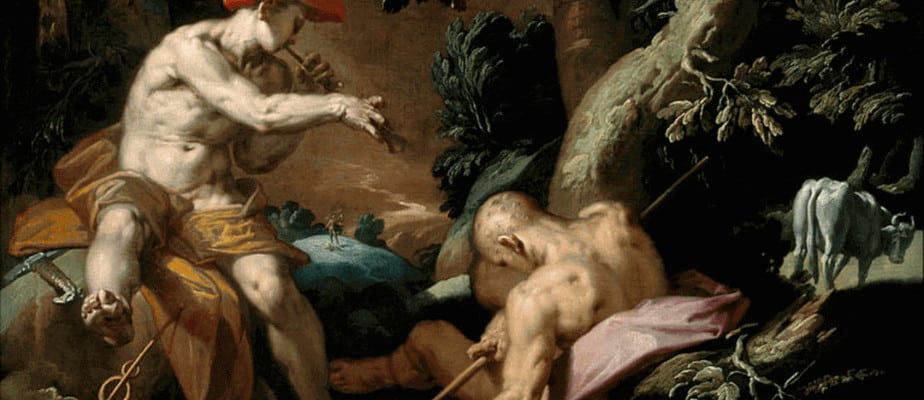
Prometheus Creates Mankind
Following the cosmic war, Zeus assigns Prometheus and his brother Epimetheus the task of crafting new creatures. Prometheus, meticulous in his work, shapes humans from clay, a decision that sets the stage for a profound clash between gods and mortals.
Stealing the Sacred Flame
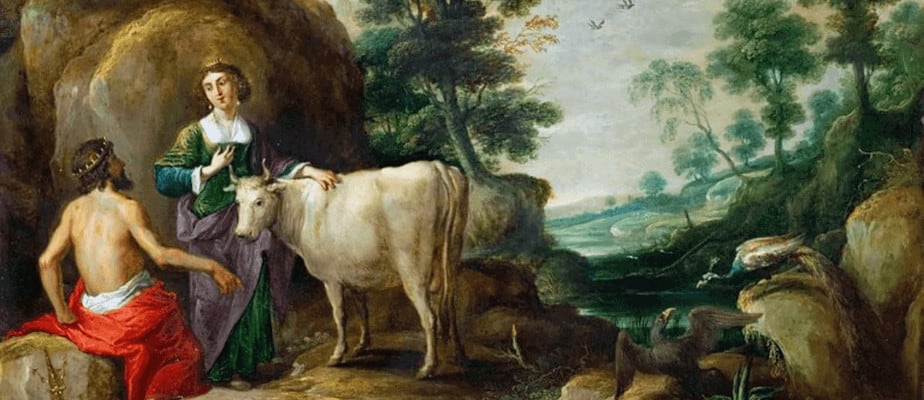
Out of compassion for his creations, Prometheus seeks to empower humanity with fire, a gift denied by Zeus. Undeterred, Prometheus steals the sacred flame and introduces it to mankind, triggering a sequence of events that challenge the divine order.
Pandora
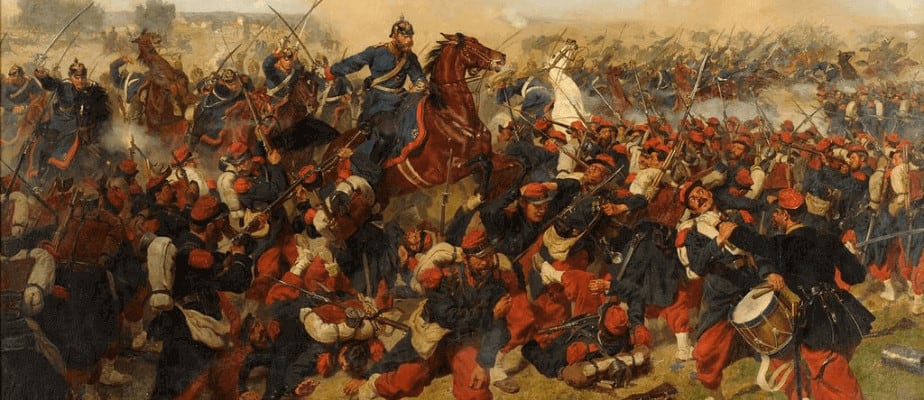
Zeus, angered by Prometheus’ defiance, devises a punishment. Enter Pandora, a woman of captivating beauty with a curiosity that unravels the evils of the world. The tale of Pandora becomes a cautionary metaphor for the consequences of human curiosity.
Prometheus Bound to the Rocks of the Caucasus
Zeus, unsparing in his retribution, orders Hephaestus to chain Prometheus to the Caucasus Mountains. Daily, an eagle feasts on Prometheus’s liver, perpetuating an endless cycle of agony. This brutal punishment epitomizes the titan’s defiance against divine authority.
Prometheus Bound by Aeschylus
Aeschylus, the ancient Greek playwright, delves into Prometheus’s story, elevating him to a hero and victim of Zeus’s cruel tyranny. The play introduces Kratos and Bia, agents of Zeus, embodying strength and force, tasked with enforcing Prometheus’s torment.
Kratos and Bia
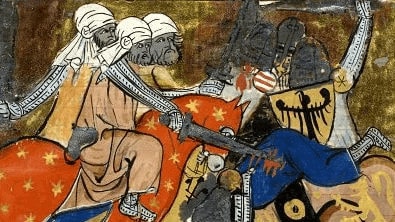
The play begins with Kratos and Bia executing Zeus’ orders, emphasizing Prometheus’ guilt for stealing fire. Aeschylus weaves a narrative that questions the morality of Zeus’s actions, setting the stage for a philosophical exploration of oppression and defiance.
Hephaestus Condemns Zeus’ Decision and Chains Prometheus
Even Hephaestus, compelled by filial duty, condemns Zeus’s harsh punishment. The play unfolds a poignant moment as Prometheus, chained and abandoned, reveals his prophetic visions and enduring resolve.
The Oceanids Offer Sympathy
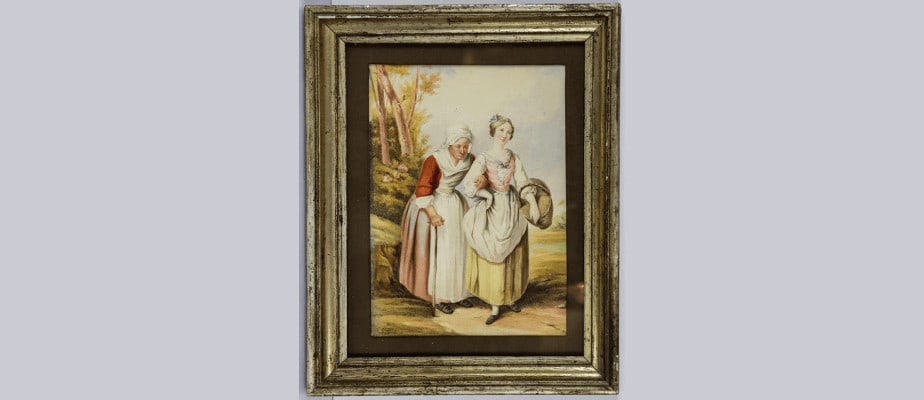
As Prometheus endures his fate, the Oceanids, daughters of the Titan Oceanus, offer empathy. Their interaction unveils Prometheus’s pivotal role in saving mankind, imparting arts and knowledge, and granting the enduring gift of hope.
Oceanus Offers His Aid
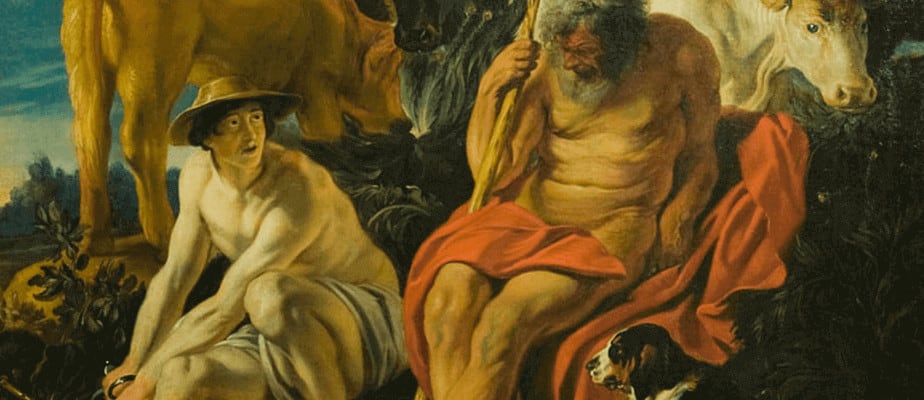
Oceanus, father of the Oceanids, contemplates pleading for mercy on Prometheus’s behalf. However, Prometheus dissuades him, anticipating Zeus’s indifference to pleas for leniency.
The Wanderings of Io
The tragic story of Io, transformed into a heifer by Zeus to escape Hera’s jealousy, intertwines with Prometheus’s plight. This narrative layer adds depth to the interconnected web of Greek mythology.
Prometheus Foretells Io’s Future
In a moment of foresight, Prometheus foretells Io’s destiny, predicting her eventual restoration to human form and the emergence of a descendant, Hercules, destined to free him from his torment.
Hermes Is Sent to Prometheus
Zeus, alerted to Prometheus’s defiance, dispatches Hermes to extract the name of the threat to his reign. This introduces an intense confrontation between Prometheus and the divine messenger.
Zeus’ New Threat
As Hermes confronts Prometheus, Zeus’s ominous threat unveils the eternal agony awaiting the Titan. The vivid portrayal in the play captures the relentless and brutal nature of divine retribution.
The Tragic End
Aeschylus weaves a poignant conclusion as Zeus’s threat materializes, foretelling an agonizing destiny for Prometheus. The play leaves a lasting impression, questioning the morality of divine rule and the resilience of the human spirit.
Conclusion
Aeschylus’s “Prometheus Bound” transcends the boundaries of a mere mythological tale, evolving into a profound exploration of morality, defiance, and the enduring spirit of humanity. The play, though ancient, resonates with timeless themes that continue to captivate audiences.
FAQs: Unraveling the Mysteries
1. Is "Prometheus Bound" the only surviving play in the series?
Ans. No, scholars believe it is the first in a series, with “Prometheus Unbound” and speculation about a third play titled “Prometheus Fire-Bearer.”
2. What role does Io play in the narrative?
A. Io’s tragic tale intertwines with Prometheus’s, showcasing the intricate connections within Greek mythology.
3. How does Aeschylus portray Prometheus's character differently from earlier myths?
A. Aeschylus transforms Prometheus into a hero and symbol of resistance, challenging traditional depictions of the Titan as a mere trickster.
4. Why does Zeus create Pandora, and what significance does she hold?
A. Zeus creates Pandora as a punishment for Prometheus, embodying the consequences of human curiosity and disobedience.
5. What enduring themes does "Prometheus Bound" explore?
A. The play delves into themes of defiance against tyranny, the consequences of divine punishment, and the indomitable nature of the human spirit.